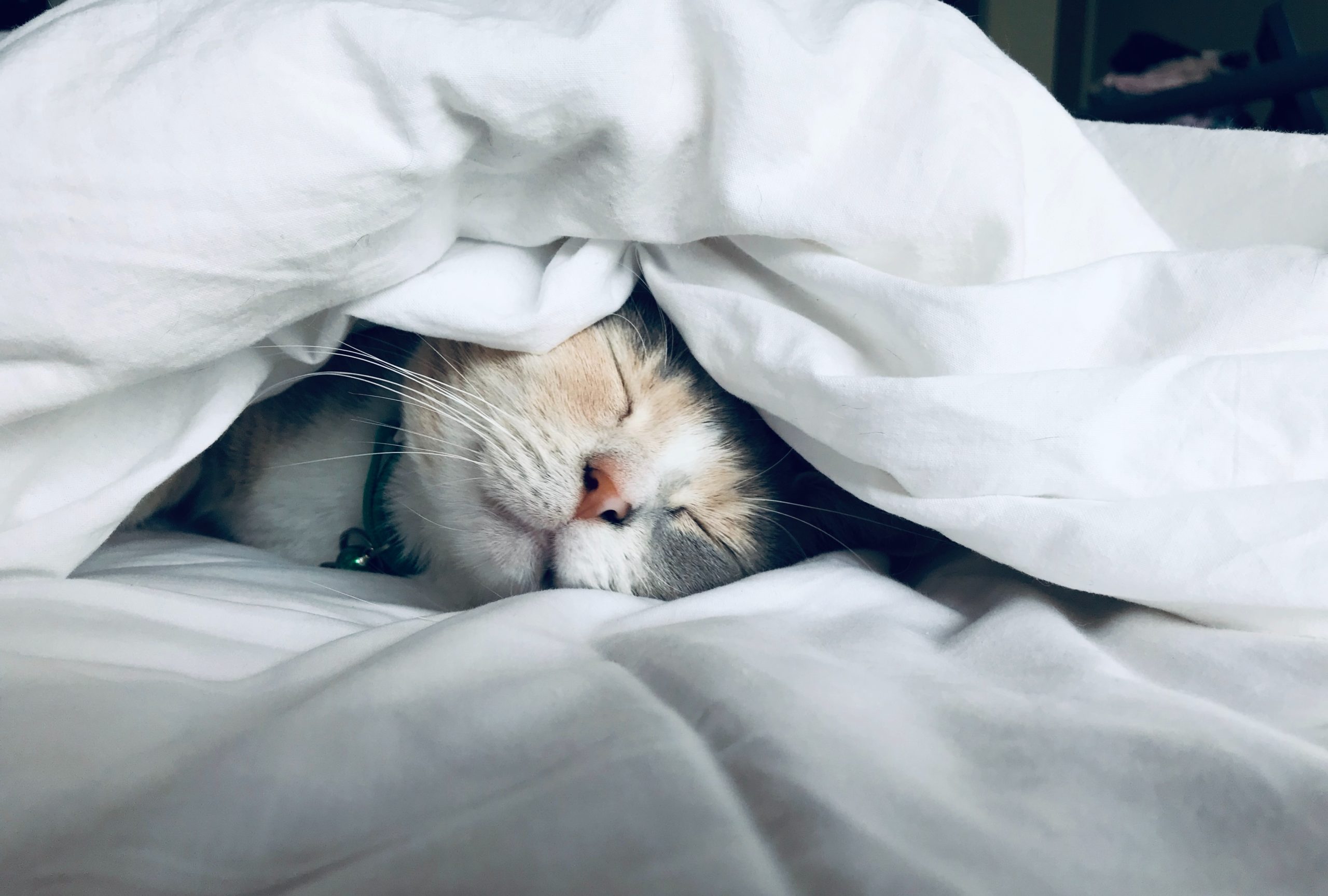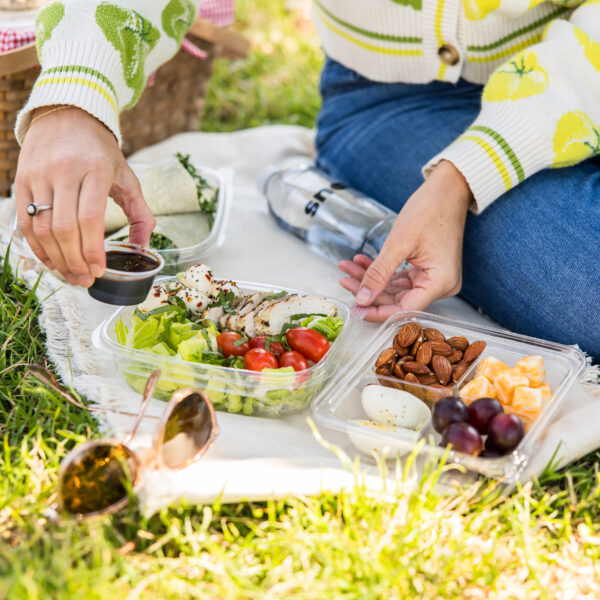I’ve never really been a “good sleeper”. Over the years, I’ve done a lot of different things to try and help improve my sleep: a glass of wine, turning off my phone a few hours before bed, getting a Fitbit to track my sleep patterns, and even a dreamcatcher.
Turning off my phone and my computer a few hours before bed was the most helpful out of all of them, but the wine just made me feel chatty if anything. All the Fitbit did was tell me how bad my sleep was — and not necessarily why it was bad.
And I’m not alone. Nearly 30 percent of adults report sleeping less than six hours per night.
So I tried these five things to help improve my sleeping habits. Here’s what happened.
Melatonin
It’s that moment your head hits the pillow, your eyes close (or “pretend sleep”, as I call it), and you start to drift off.
Well, at least it is always those first two steps for me. As soon as my head hits the pillow, I start thinking about all the things still left on my to-do list, the tasks left unattended, the bits of information I should write down but can’t. Because of this, I’ve taken melatonin on and off for years. This has always been one of my most tried-and-true methods for getting to sleep a little easier.
Melatonin itself is a hormone that’s produced naturally in the body. It’s typically released in connection with the darkness of the sky. (Which is why they say it’s helpful to disconnect and turn off all blue lights a few hours before bed). The darker it is, the more melatonin is released. The lighter it is, the less.
What’s more? The likelihood to develop a dependence on melatonin is slim.
Melatonin supplements are available to help those who deal with circadian rhythm sleep disorders, insomnia, jet lag, shift-work disorder, and more. As with anything, please consult with your doctor or physician before taking melatonin.
At the end of the day, I use this one less than I use the others, as I personally like to try and sleep without supplemental aid.
Score: 7/10
White noise
White noise is one of those things that’s become more ubiquitous the more access we have to it. Playlists are all over Spotify; Bose once created a set of headphones that just played white noise. At this rate, nearly 5 percent of Americans sleep with a sound machine to help aid their sleep.
But what’s even better is that white noise is helpful in aiding memory, too.
Considering sleep is one of those things that we all need to do to live, not much is known about it. What is known, however, is that pink noise helps aid in “sleep-dependent memory” scores according to a study from Northwestern University.
At the end of the day, it’s best in helping to drown out loud neighbors, street sounds, or snoring.
For me, I use my fan to create white noise. When set on the highest setting, it keeps the room chilly and keeps me from hearing the total absence of sound — which, funnily enough, is the thing that tends to keep me up, and keeps my thoughts racing.
Score: 9/10
Not eating spicy foods
This one is hard for me, as I am a huge fan of spicy foods. Plus, it sounds more myth than fact. But I had to try it.
Turns out, the International Journal of Psychophysiology needed to try it out, too. In their study, they evaluated sleep patterns on both nights after they ate spicy food, and nights they didn’t. According to the New York Times, “On the nights that included spicy meals, there were marked changes in the subjects’ sleep patterns. They spent less time in both the light phase of sleep known as Stage 2 and the deep, slow-wave Stages 3 and 4. All of which meant that they experienced less sleep overall and took longer to drift off.”
While this one does help a little, it didn’t feel significant enough for me. Plus, my food had to be a little blander.
Score: 5/10
Not eating after 8 pm
Okay, this one sounded a little far-fetched. But I had to check it out.
Upon research, I discovered that there is actually substantial evidence that sleep deprivation is linked to weight gain as it increases appetite. So, there’s a huge link between food intake and sleep, and vice versa!
But that’s just the bottom line. What about eating after 8 pm?
A group of students from the Universidade Federal de São Paulo set out to do just that. In a testing pool of 52 participants (27 women, 25 men) studied over three days, the students discovered that there was actually a correlation among their test subjects between the timing of food intake and sleep quality, but noticed that it particularly affected women more than men.
For me, this didn’t seem to affect my sleep patterns in any noticeable or meaningful way — not as far as I could tell.
Score: 2/10
Exercising
Using exercise to improve my sleep has always been one of my favorite methods. But was this something that I experienced alone, or was this something that actually had a scientific correlation among others, as well?
According to a study from Kelly Glazer Baron at the Feinberg School of Medicine at Northwestern University, it does.
In the study, Baron used participants mostly in their 60s and had them do 3-to-4 30-minute exercise sessions per week.
At the end, “they slept, on average, about 45 minutes to an hour longer on most nights, waking up less often and reporting more vigor and less sleepiness.”
As for myself, this has always been one of the best methods to help aid in my sleep.
Score: 9/10
Whether you’re having trouble getting to sleep, or having trouble staying asleep, getting a night of good shut-eye is a necessity. What are some of your favorite methods to get a good night’s rest? Let us know in the comments below!
For those looking to change your life: whether it’s sleep, health, nutrition, wellness, your fitness routine, whatever — the best things start with your diet. Sign up for our meal plans and get the nutrition partner you’ve always wanted.





Leave a Reply
No Comments